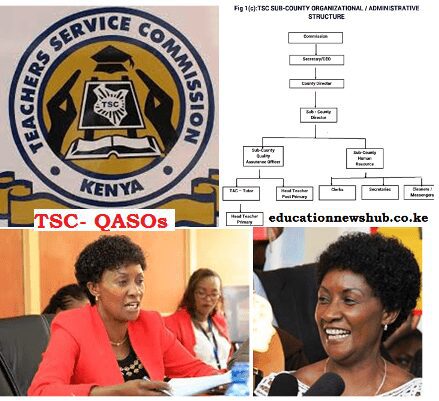As role models, we the Teachers Service Commission (TSC) employees are expected to uphold high standards of discipline and champion for sanity in the society.
We should avoid any action which may go against the expectations,to deliver the best of what our employer requires of us.
The core mandate of the union is to oversee the well being of a teacher,which includes ensuring that he/she doesn’t get into stressful situations due to misconduct.
It’s prudent for the union of this time to adopt a proactive and informative approach to disciplinary issues in order to improve its efficiency.
Teachers are equally advised to be well conversant with the general guidelines and provision of the Code of Regulations for Teachers, CORT.
Teachers who violate the provisions of the Code of Regulations for Teachers and the TSC Code of Conduct and Ethics will face disciplinary action which may include warning or interdiction.
WHEN CAN TSC TAKE DISCIPLINARY ACTION AGAINST A TEACHER
The Commission may take disciplinary action against a teacher who commits any of the following offences: Immoral behaviour, including but not restricted to:
- Sexual intercourse
- Sodomy
- Lesbianism and
- Sexual harassment
- Professional misconduct including but not restricted to:
- Negligence of duty (failure to do the duties as assigned, including not able to meet the set deadline)
- Lateness to duty
- Chronic absenteeism
- Desertion (being absent from duty for 14 days without permission)
- Incitement
- Insubordination
- Infamous conduct including but not restricted to:
°Drunkeness
°Fighting
°Conduct or behaviour which in the opinion of the Commission contradicts the spirit and tenor of Chapter six of the Constitution - Forgery/ presentation of forged documents, Mismanagement, misappropriation and embezzlement of public funds, Any other act of conduct that is incompatible with the teaching profession
See also;
- TSC discipline process for teachers; Interdiction, discipline cases and dismissals
- TSC Dismissal letter
- TSC revocation of interdiction letter
- TSC Show cause letter for teachers
The TSC Disciplinary Process
A Head of institution may initially issue a verbal warning or caution the teacher in writing on minor breaches.
In case of persistent misbehavior, the teacher may be required to show cause why disciplinary action should not be taken against him/her. _(Call a union leader immediately to help in writing a response ,which is required within a period of two weeks (14 days).Submit the response on the last day to lock out the principal from amending the allegations)_
From the teacher’s response, the head of institution may serve the teacher with a warning or present the case before the agent.
The agent shall;
✓Investigate and assemble relevant evidence.
✓Invite the accused teacher in writing to defend himself/herself against specified allegation (a two weeks’ notice must be given. Inform the union to send a representative to be part of the panel).
✓Call witnesses to give evidence in the presence of the accused teacher.
✓Allow the teacher to cross-examine each witness. (most witnesses are always coached ,play with their minds to establish if they had a meeting with the accuser before the hearing date)
In case of desertion where teacher’s whereabouts is unknown, the agent will interdict without any delay.
After the preliminary hearing the agent may reach any of the following decisions;
✓No case to answer.
✓Warn the teacher administratively.
✓Interdict the teacher.
NB: In some cases TSC or agent can interdict a teacher without inviting him/her for preliminary hearing.
An interdicted teacher should write a defense statement within 21 days from the date of interdiction and provide contact address ( consult the union in the process). Normally a case will be heard within three months after interdiction.
In case of delay the teacher is advised to make inquiries.
Teachers interdicted on cases of incitement, insubordination, infamous conduct and negligence of duty will be paid half salary during the period of interdiction
TSC Disciplinary Process: Determination
After interdiction and submission of the required evidence the teacher shall be given a chance to defend himself/herself in person before the Commission. A case shall be heard and determined in the absence of the teacher if he/she fails to appear during the hearing.
From the evidence gathered, the Commission may;
✓Revoke the interdiction.
✓Warn the teacher.
✓Suspend the teacher from duty.
✓Dismiss the teacher from service.
✓Retire the teacher in the public interest.
✓Dismiss and remove from the register of teachers.
It is an offence for a teacher to engage in teaching in any institutions (public or otherwise) during the period of interdiction or suspension or on removal from the registry of teachers.
Where a teacher has been suspended from duty, he/she will be posted 14 days before the expiry of the suspension.
A teacher will be posted immediately in cases of revocation and warning. A teacher who does not receive communication within 28 days after hearing should make enquiries to the Commission Headquarters in person.




